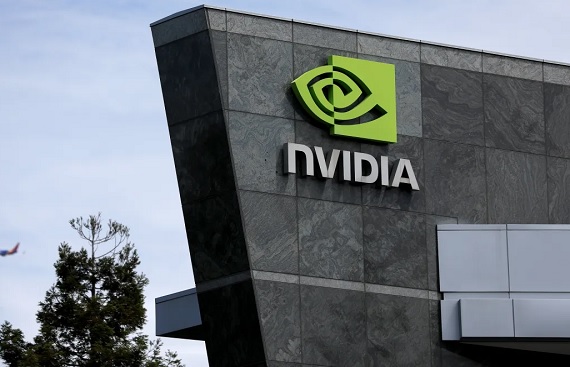Nvidia Surpasses Microsoft to Claim World's Most Valuable Company Title
By
siliconindia | Wednesday, 19 June 2024, 12:54:36 PM IST

Nvidia's meteoric rise in the stock market has propelled it to the pinnacle of global corporate valuation, surpassing longtime leader Microsoft to become the world's most valuable company. This shift in status underscores Nvidia's pivotal role in the race to dominate artificial intelligence (AI) technology, driven primarily by its high-performance processors.
On the trading floor, Nvidia's shares surged 3.5% to $135.58, catapulting its market capitalization to an impressive $3.335 trillion. This surge comes hot on the heels of Nvidia's recent overtaking of Apple to claim the position of the second most valuable company. Meanwhile, Microsoft, whose market value stands at $3.317 trillion, saw its shares dip slightly by 0.45%. Apple, despite a stock slip of over 1%, holds a valuation of $3.286 trillion.
Nvidia's remarkable ascent in market value reflects a broader frenzy on Wall Street fueled by optimism surrounding AI technologies. Investors have increasingly bet on Nvidia as a frontrunner in this domain, a sentiment that has not only boosted Nvidia's stock but also driven record highs for indices like the S&P 500 and Nasdaq.
Steve Sosnick, chief market strategist at Interactive Brokers, captured the sentiment succinctly, noting, "It's Nvidia's market; we're all just trading in it". Indeed, Nvidia has emerged as the most traded company on Wall Street, with daily trading volumes averaging $50 billion a stark contrast to the approximately $10 billion seen for other tech giants such as Apple, Microsoft, and Tesla.
Nvidia's stock has nearly tripled in value so far this year, significantly outpacing the modest 19% rise in Microsoft shares. The surge has been fueled by robust demand for Nvidia's advanced processors, which are in short supply due to overwhelming interest in AI applications across various sectors.
In the tech industry, giants like Microsoft, Meta Platforms (formerly Facebook), and Google's parent company Alphabet are all aggressively expanding their AI capabilities. However, Nvidia has distinguished itself with AI processors widely regarded as superior to competitors' offerings. This technological edge has cemented Nvidia's position as a primary beneficiary of the AI boom.
Despite its commanding lead in the market, some analysts caution against unchecked optimism, highlighting the volatility inherent in tech stocks. Oliver Pursche, senior vice president at Wealthspire Advisors, emphasized, "Nvidia has been getting a lot of positive attention and has been doing a lot of things very correctly, but a small misstep is likely to cause a major correction in the stock, and investors should be careful".
Nvidia's exponential growth trajectory is underscored by its market capitalization milestones. In February, the company reached $2 trillion just nine months after hitting the $1 trillion mark. By June, Nvidia had swiftly ascended to a $3 trillion valuation, reflecting its dominant position in the AI and tech sectors.
Looking ahead, Nvidia faces the challenge of meeting soaring demand for its products, particularly its Blackwell AI chips, which are expected to remain in short supply well into the next year. This supply constraint has further fueled investor enthusiasm, even as Nvidia's earnings valuation has moderated slightly from its peak, trading at 44 times expected earnings, down from over 84 a year ago.
In a move to enhance accessibility to its high-priced shares, Nvidia recently executed a 10-for-one stock split, a decision aimed at broadening its investor base and democratizing access to its highly valued stock.
Read More News :
How Can You Generate Wealth by Investing in Small Cap Nifty 50 Fund?
12 Personalization Techniques That Will Enhance Your Email Marketing Campaigns



